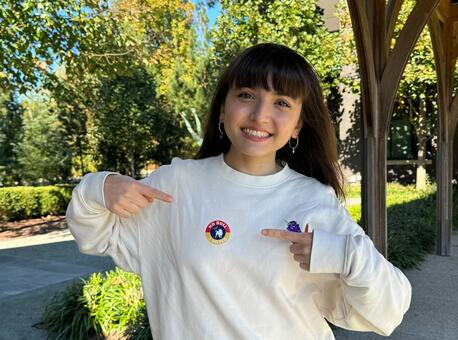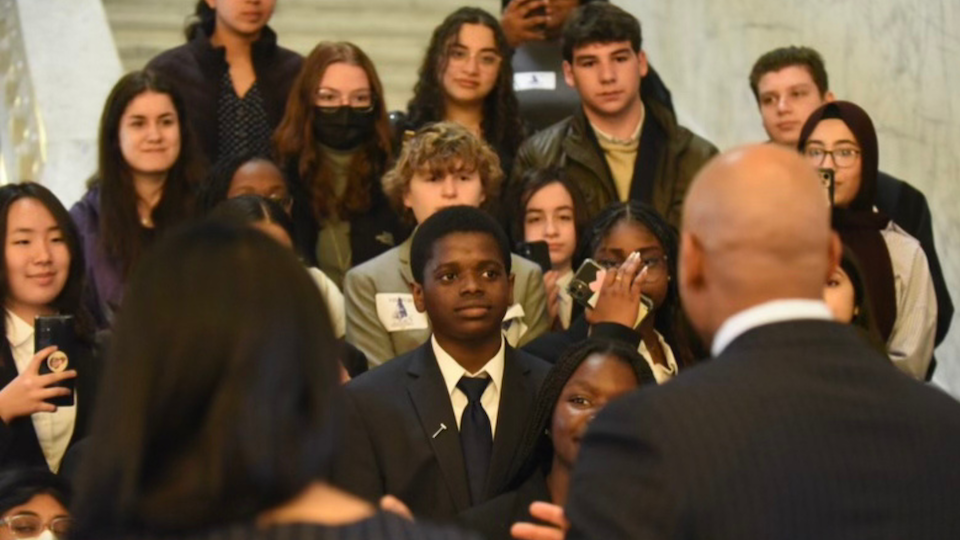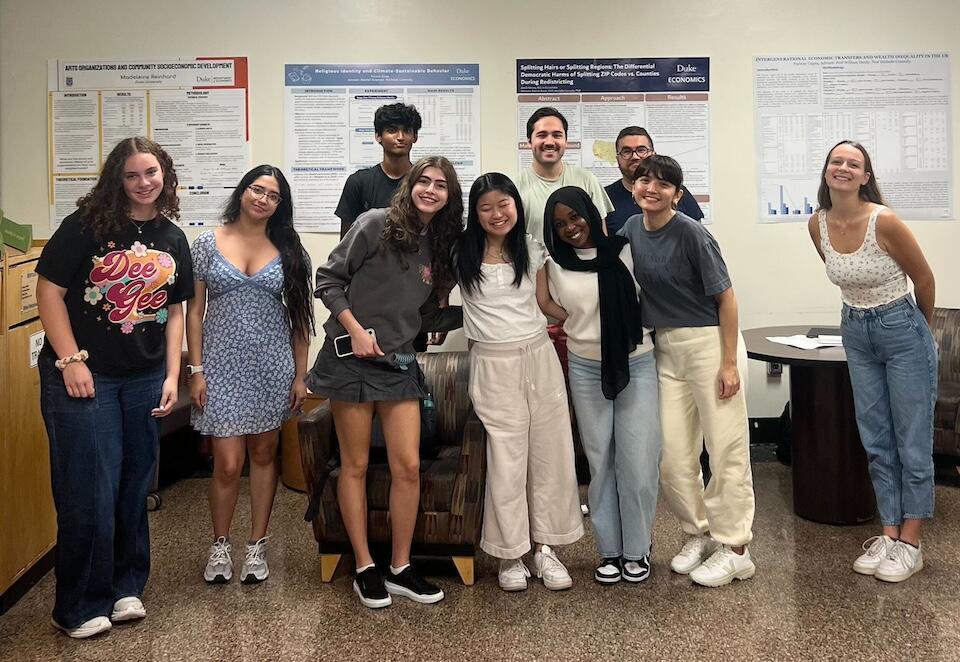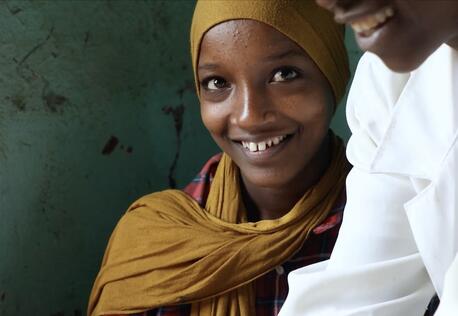
The Future Is Calling but Not Being Heard: Representing Youth Voices at the Polls
Three UNICEF USA youth leaders share thoughts about the political process — and why, despite it being an "adultocracy" — they remain determined to drive meaningful change around the issues they care about.
Are adult voters listening to youth?
So often, the phrase "children are the future" is thrown around, yet when it comes to elections — the very process that shapes the course the future will take — the voices of young people are left out. It can feel as though the main characters are being excluded from their own story.
For many young people, election season can feel overwhelming. While trying to educate themselves on policies, candidates and the voting process, they are also hearing the adults around them share their opinions freely and audibly without ever being asked what they think.
In a recent UNICEF USA youth survey conducted by the Harris Poll, 55 percent of respondents aged 14 to 22 said they formed their political opinions by listening to their parents or guardians.
But are the adults listening to their unique perspectives?
It can be daunting to express opinions that deviate from the norm in one’s household, school or community, especially when youth feel that adults may dismiss them because of their age.
Below, three UNICEF USA youth leaders — two voting for the first time and one not yet of voting age — share their thoughts on what some call the “adultocracy” that is the political process, and why, despite this, they remain determined to drive meaningful change around the issues that will most affect their lives.
UNICEF USA youth leaders share what's top of mind in run-up to Election Day
Ariana, 21, a first-time voter and junior at Duke University, says she often grapples with the question of whether her vote actually makes a difference. “Often, I ask myself, will my vote count? What’s the point?”
The climate crisis is top of mind for Ariana this year. “Living in the South, witnessing the damage from Hurricane Helene firsthand, I can’t help but think about the immediate and long-term consequences of voting," she says. "Climate change is a critical issue in this election, and it’s not just abstract anymore.”
For Elmar, a 19-year-old student of political science at California State University, mental health is the issue closest to his heart. As a young person, he sees firsthand how mental health affects everything from academic studies to relationships to overall well-being.
“It’s essential that we implement a more strengthened support system in schools and provide mental health resources that children can rely on as they often struggle with these problems silently,” Elmar says. This is what is motivating him to vote in his first presidential election. Also, that "every child should have the right to attend school safely without the fear of gun violence.”
Even young people not yet of voting age like David, a 16-year-old high school sophomore in Baltimore, says he’s “most concerned about a child's right to be protected and have access to a good education.”

Seeing climate disasters, violence and social injustice every day through their phones — as if living in a constant, real-time documentary — many young people feel as if the stakes of voting, taking action and sharing their views couldn't be higher. Despite not always feeling heard by the adults in their lives, Ariana, Elmar and David all say they feel hopeful, because they believe most others in their generation feel similarly about the issues that matter to them.
“I anticipate the likelihood that many children and young adults will continue to be affected by natural disasters that will increase in frequency and severity," Ariana told UNICEF USA. "So while I may still experience reluctance about my individual contribution, I feel reassured knowing that millions of college students across the country make up a large majority of constituents. If we all exercise our right to vote, we can be heard and shape our future."
If we all exercise our right to vote, we can be heard and shape our future. — Ariana, 21
David has this message for his peers who, like him, are still too young to vote: Keep believing in free thinking and autonomy, "especially whenever adults question young people's morals and values in this election.”
Elmar’s advice to fellow first-time voters is to conduct your own thorough, independent research, and "select the candidate who best aligns with your values and brings about the change you want to see in the world.”
When discussing the election with parents, guardians or other adults, he adds, “it’s important to focus on the key issues that need attention and explain things clearly and without bias, helping them fully understand what’s at stake.”
Tips for talking to adults about the issues
If you’re a young person wanting to make sure your needs are being met and your perspective taken into account on Election Day, here are a few tips for talking to your parents and other adults in your life about the issues that matter to you:
- Ask for their opinions on issues, not candidates. If you do talk about candidates, ask what their children’s agenda is.
- Tell your story and try to find common ground.
- Be clear about what you want them to do and why.
And if you’re an adult, make a point to listen to the young people around you. Keep their needs in mind when casting your ballot because you are, quite literally, voting for their future.

Learn more about UNICEF Clubs.
UNICEF works in over 190 countries and territories to create a more equitable world for children. Learn more about what UNICEF does to ensure children are healthy, educated, protected and respected.
HOW TO HELP
There are many ways to make a difference
War, famine, poverty, natural disasters — threats to the world's children keep coming. But UNICEF won't stop working to keep children healthy and safe.
UNICEF works in over 190 countries and territories — more places than any other children's organization. UNICEF has the world's largest humanitarian warehouse and, when disaster strikes, can get supplies almost anywhere within 72 hours. Constantly innovating, always advocating for a better world for children, UNICEF works to ensure that every child can grow up healthy, educated, protected and respected.
Would you like to help give all children the opportunity to reach their full potential? There are many ways to get involved.




